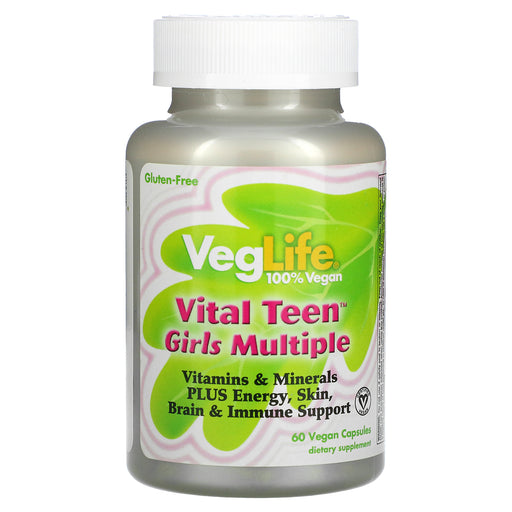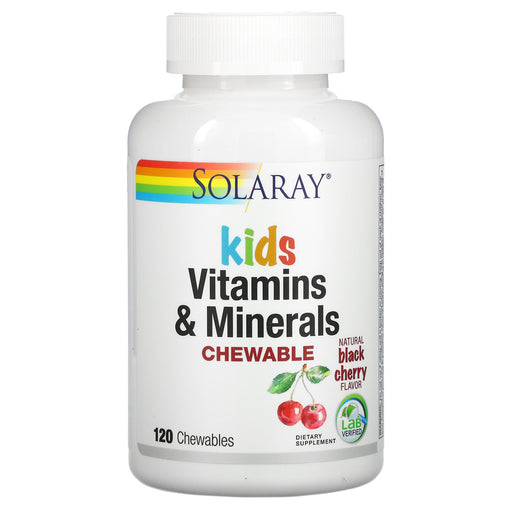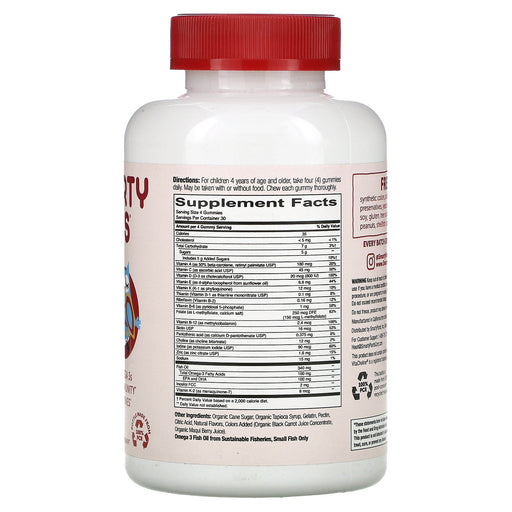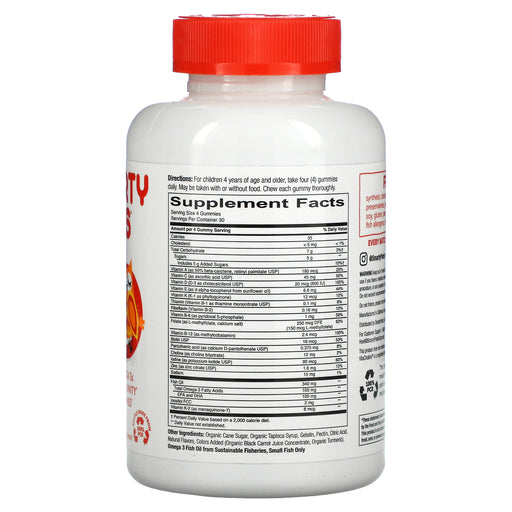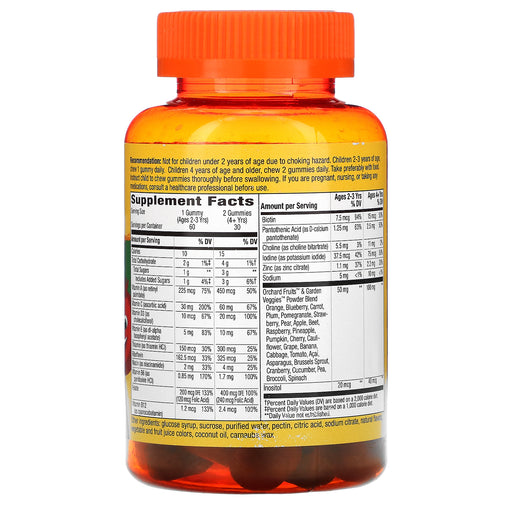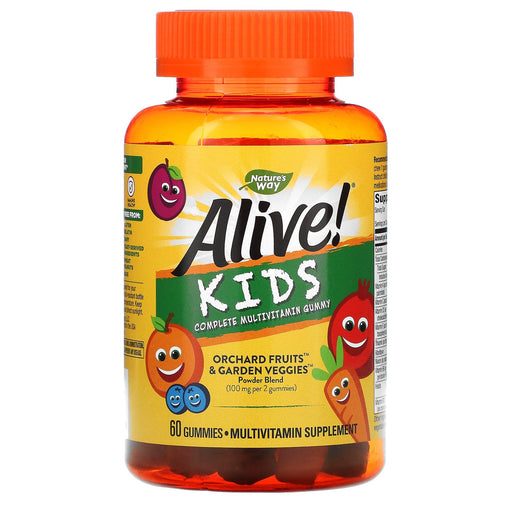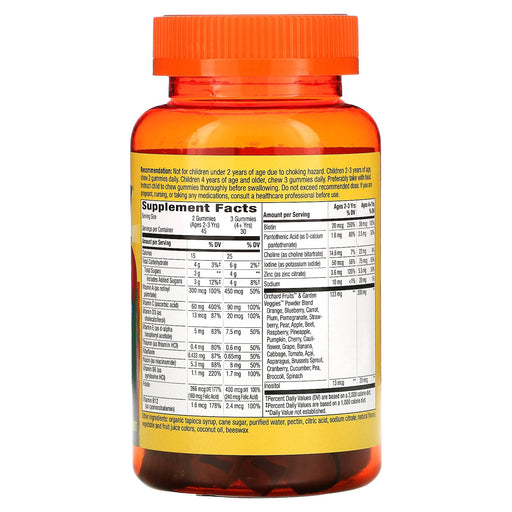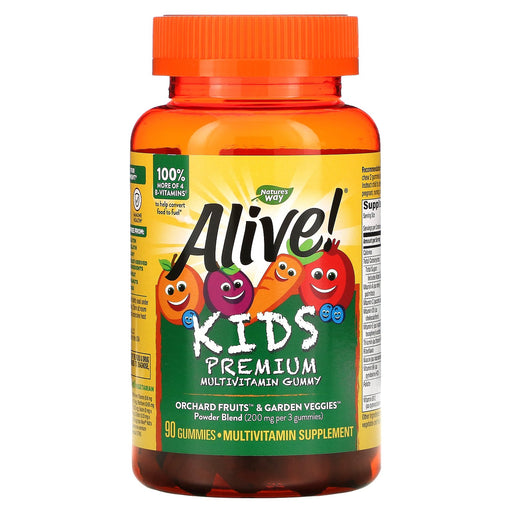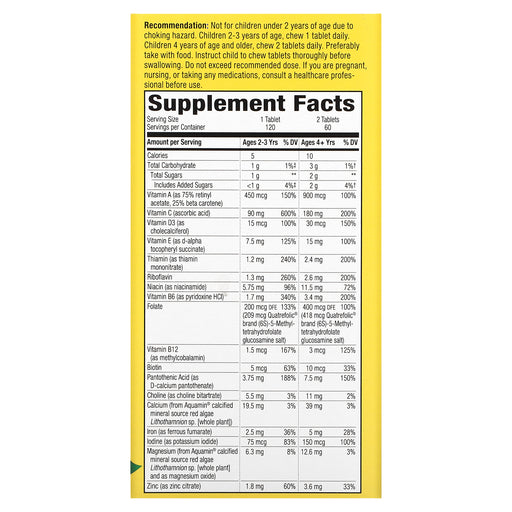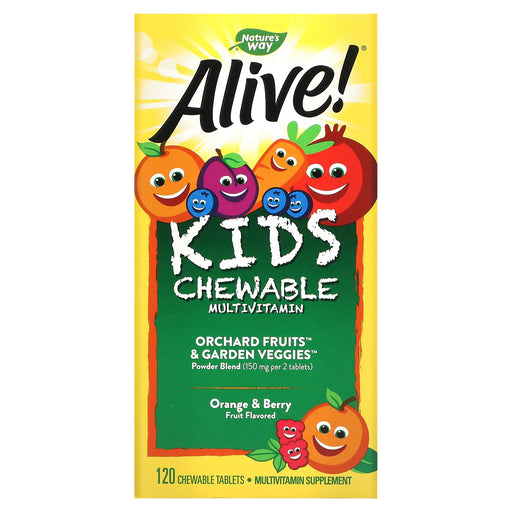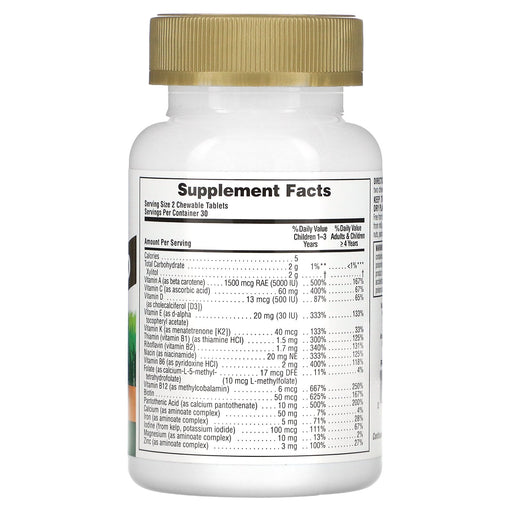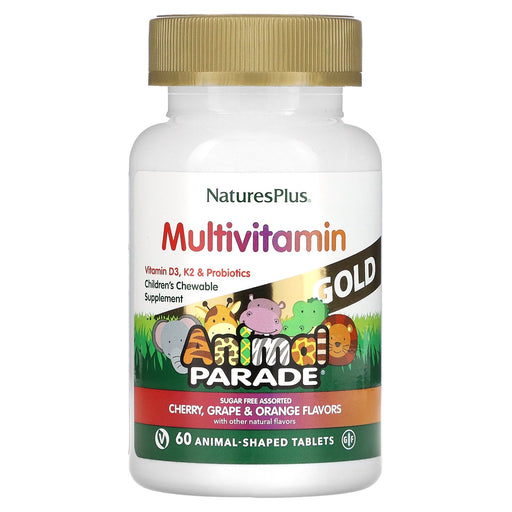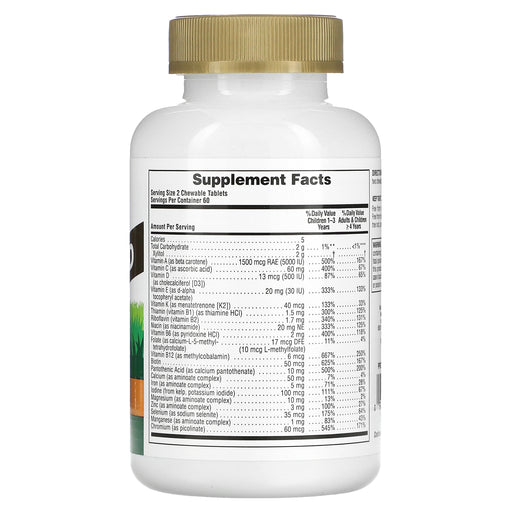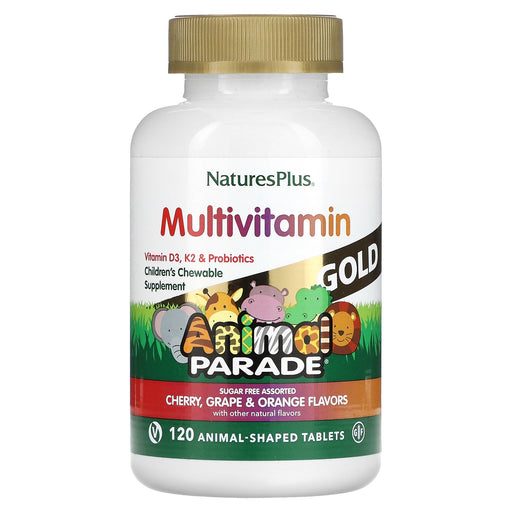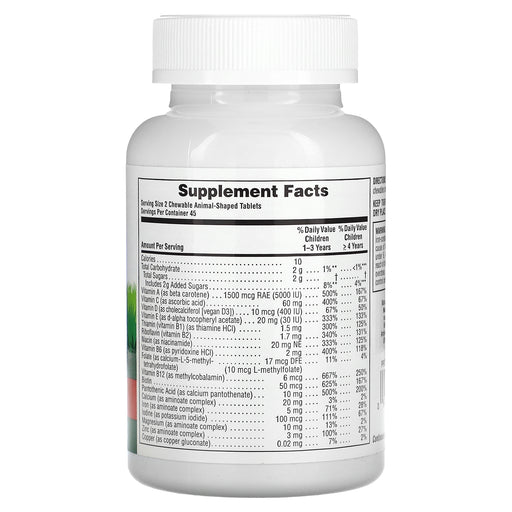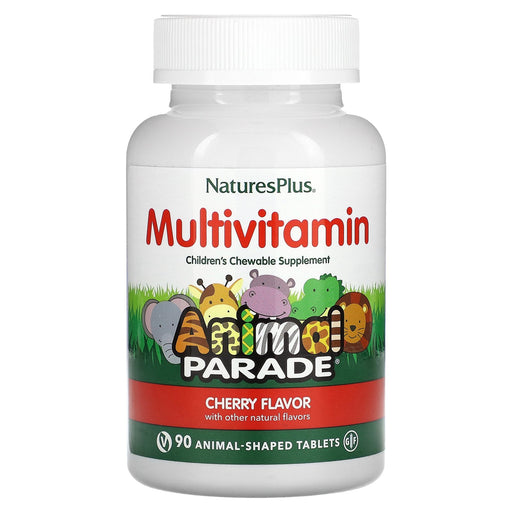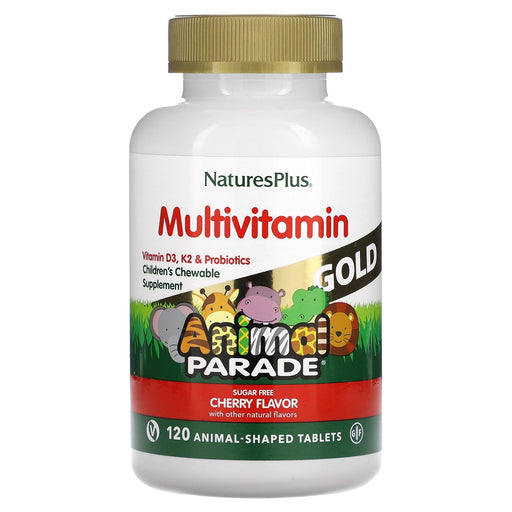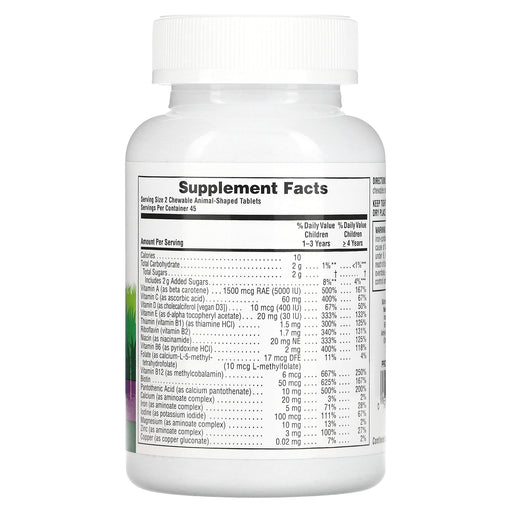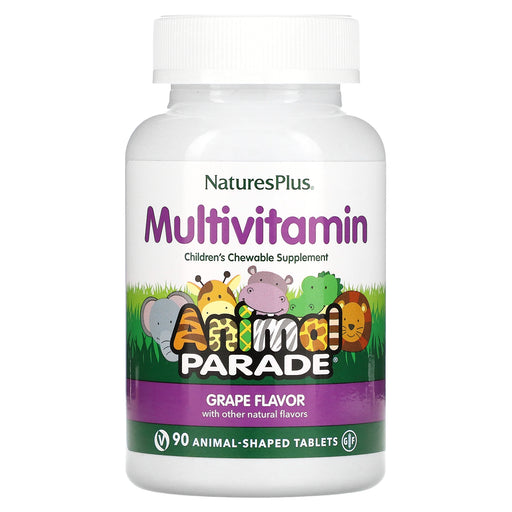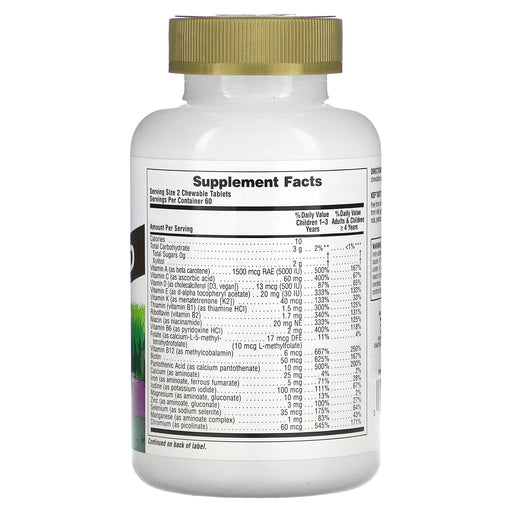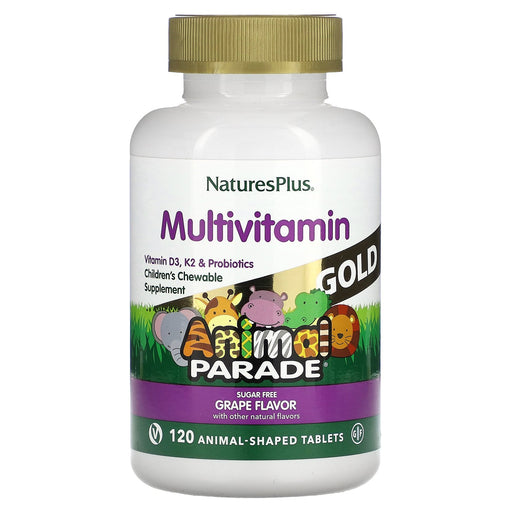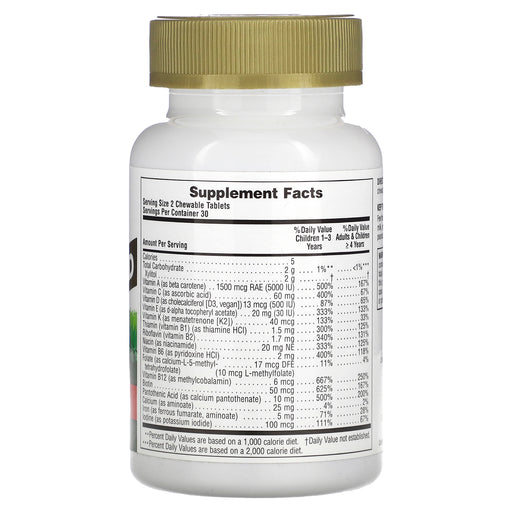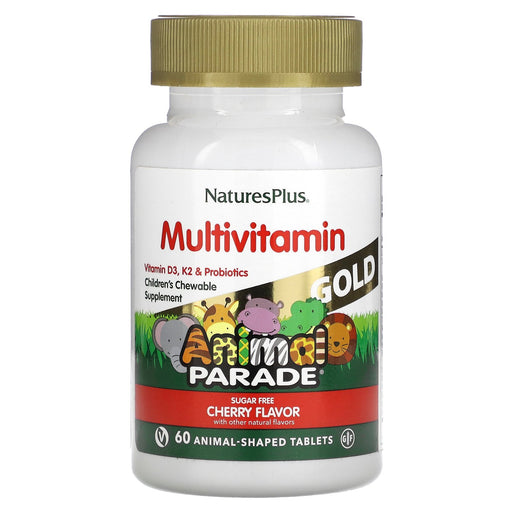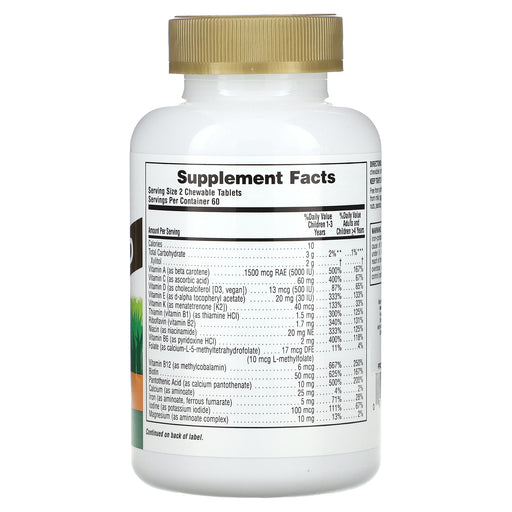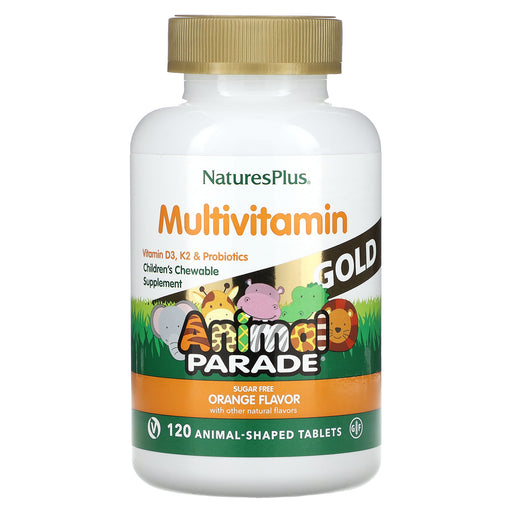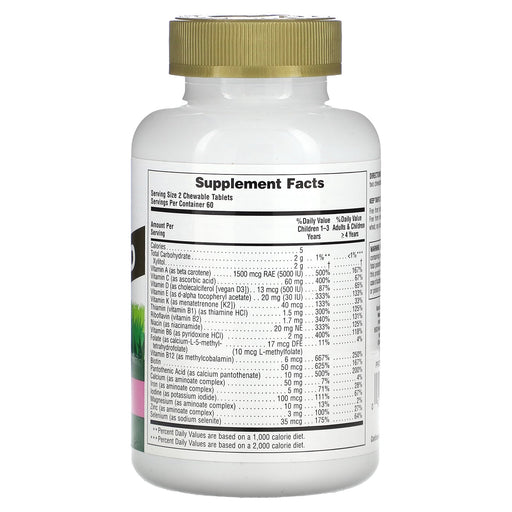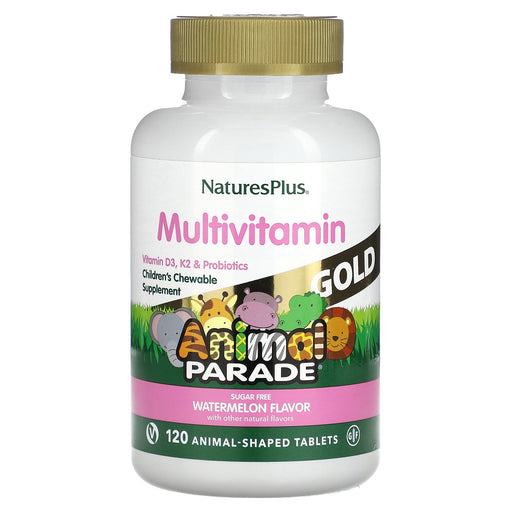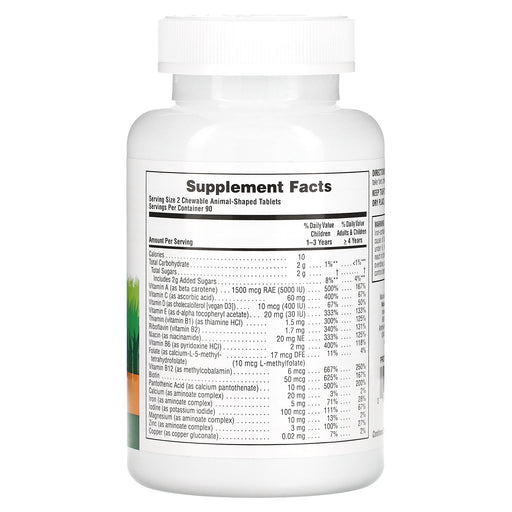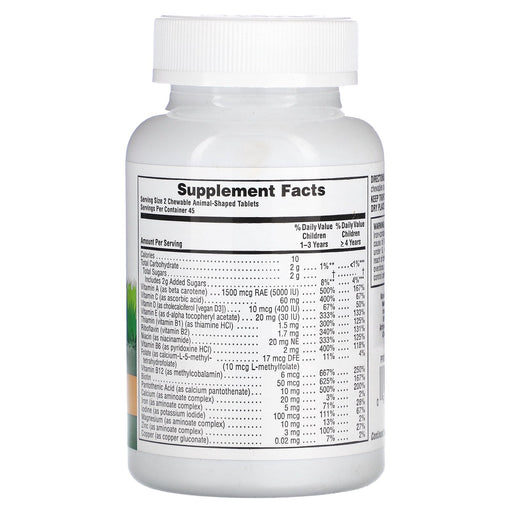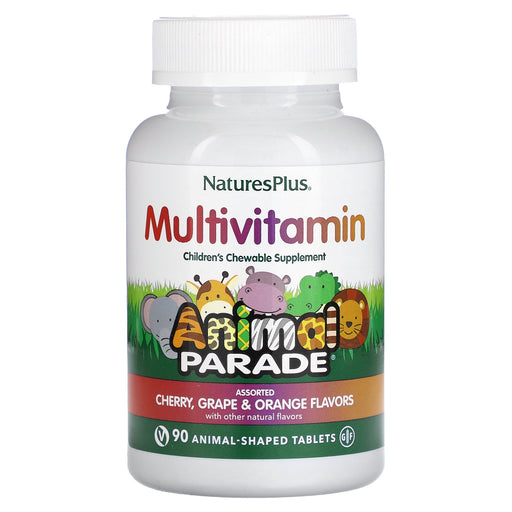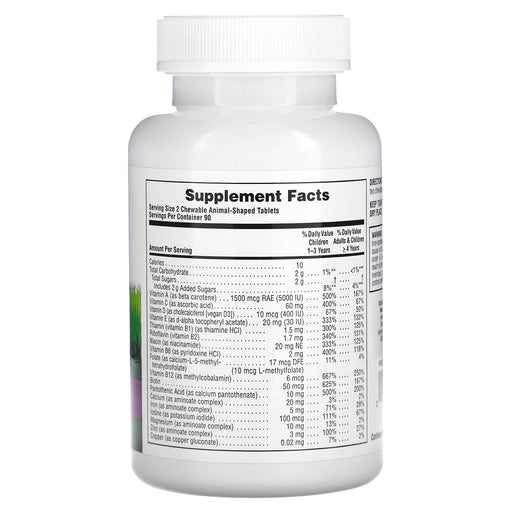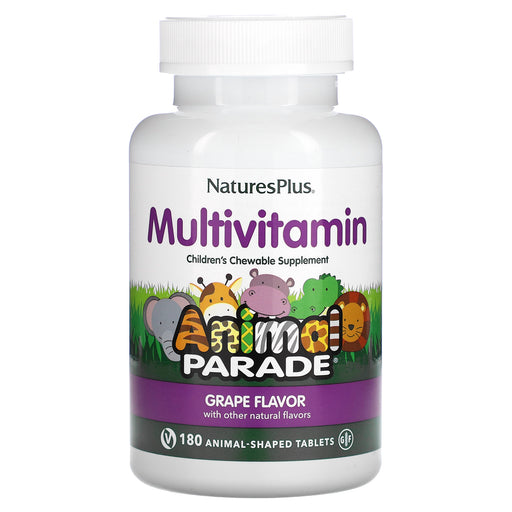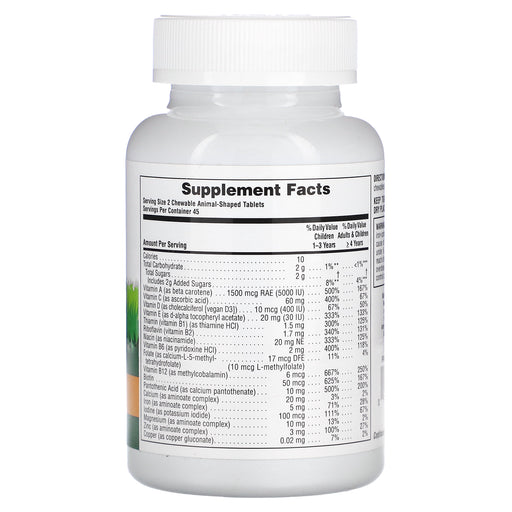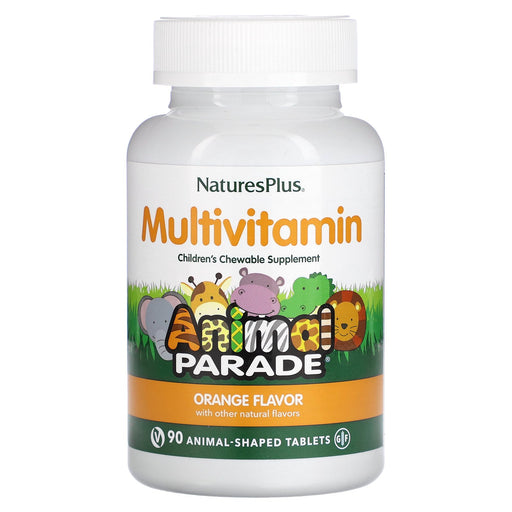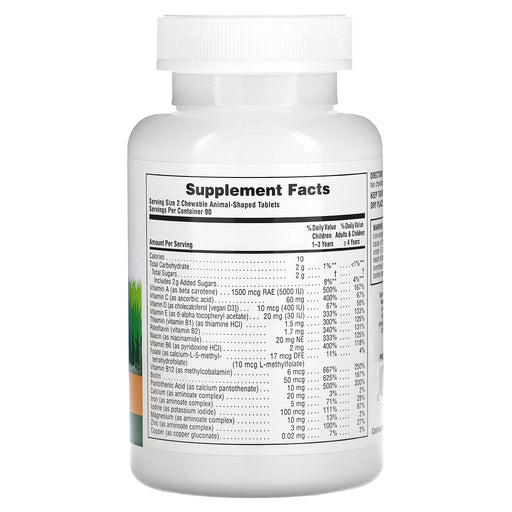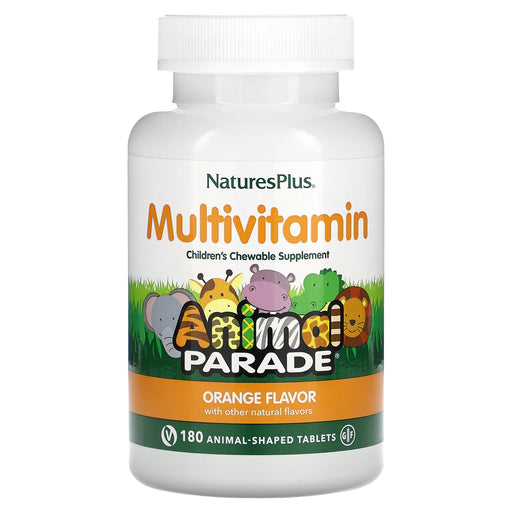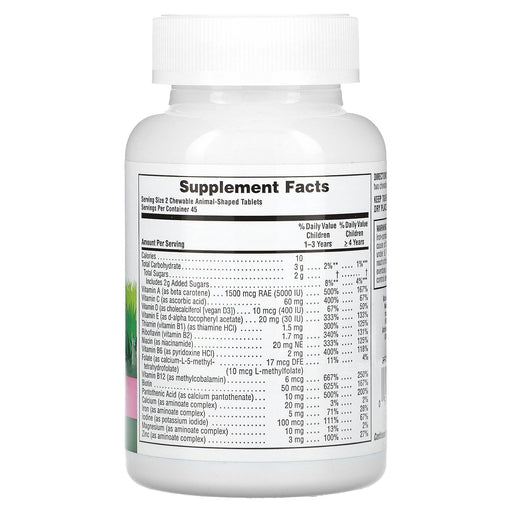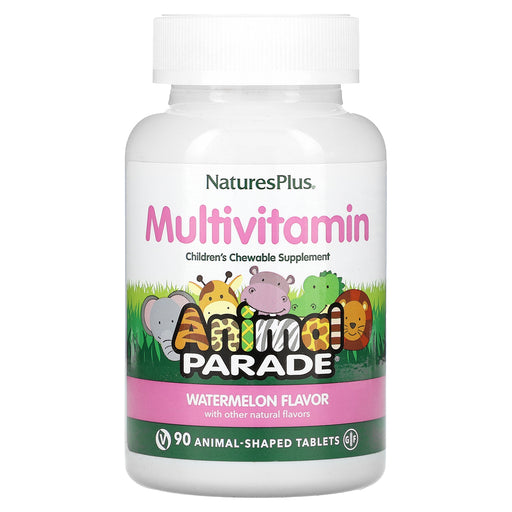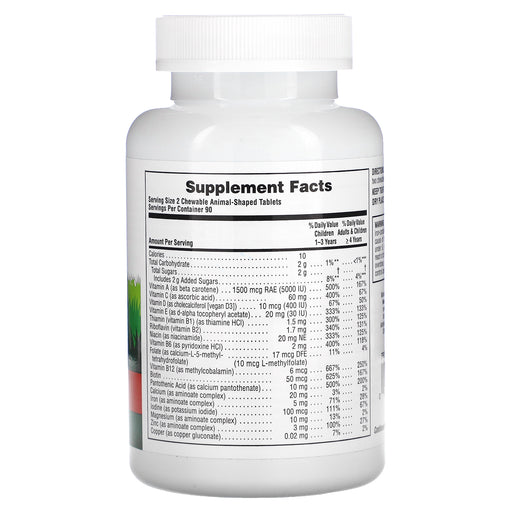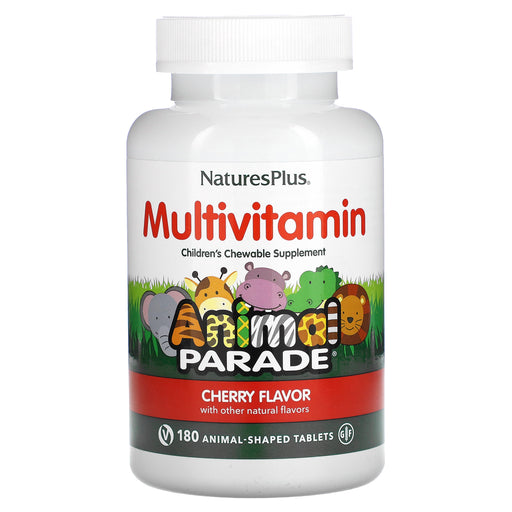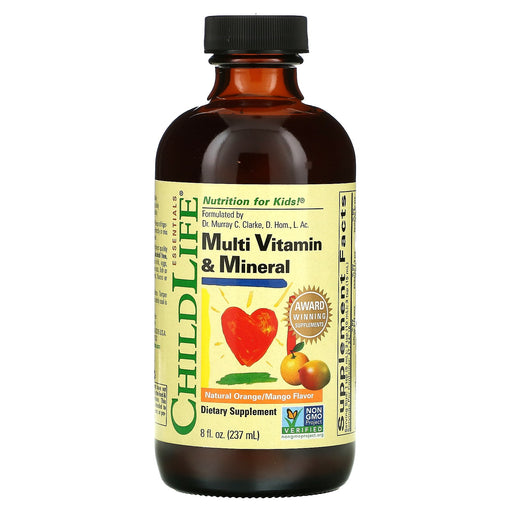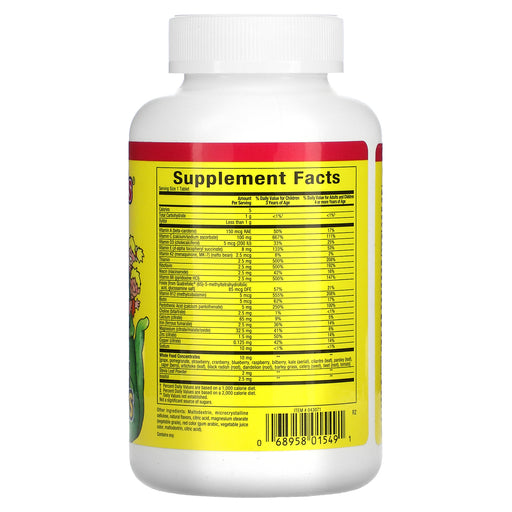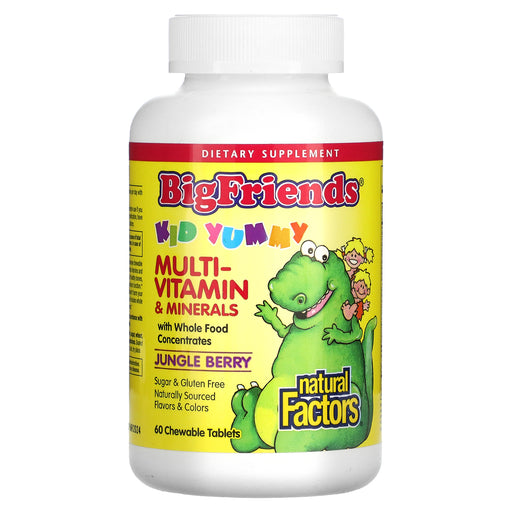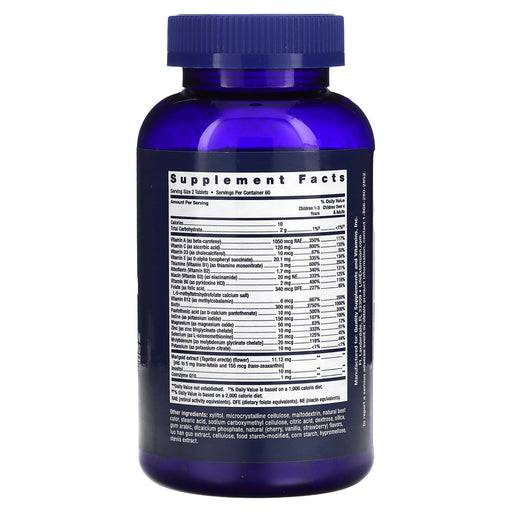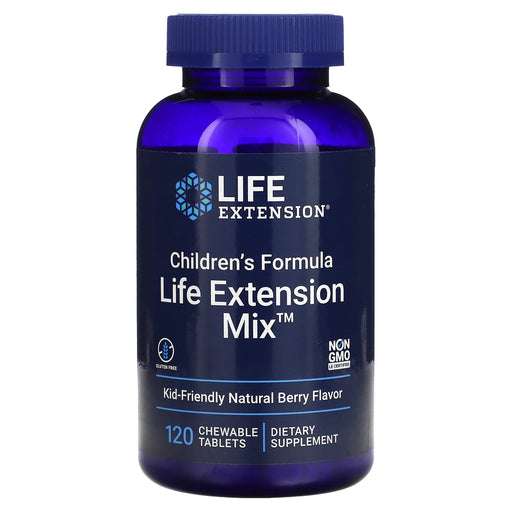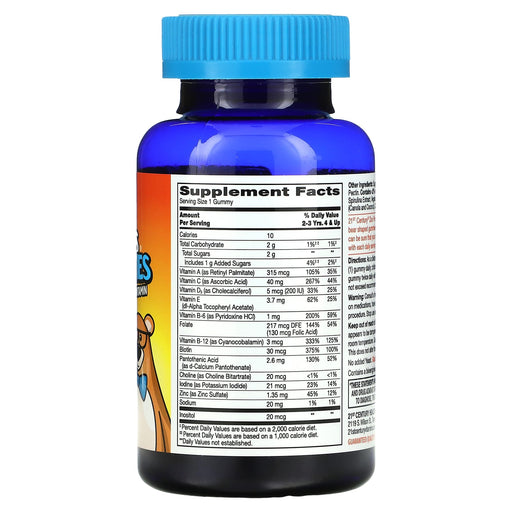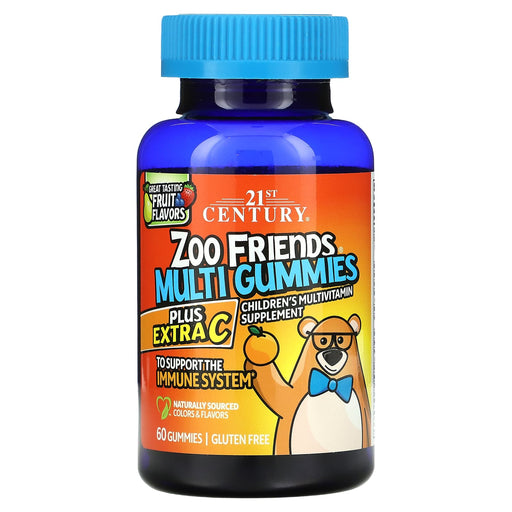
Supporting Your Child's Health and Development with Comprehensive Multivitamin Nutrition
As a parent, your child's health and well-being are your top priorities. To support their growth, development, and overall health, it's essential to ensure they receive the vitamins and minerals their bodies need. Children's multivitamin supplements can help fill nutritional gaps and provide the building blocks for a strong, healthy foundation.
The Importance of Vitamins and Minerals in a Child's Diet
Vitamins and minerals play crucial roles in numerous bodily functions, from supporting immune health and cognitive development to building strong bones and teeth. Some of the most important nutrients for children include:
- Vitamin A: Essential for healthy vision, immune function, and proper growth and development.
- B Vitamins: Necessary for energy production, brain development, and nervous system function.
- Vitamin C: Supports immune health, wound healing, and the absorption of iron.
- Vitamin D: Helps the body absorb calcium and is crucial for building and maintaining strong bones and teeth.
- Calcium: Essential for building and maintaining strong bones and teeth, as well as supporting muscle and nerve function.
- Iron: Necessary for the production of hemoglobin, which carries oxygen throughout the body, and crucial for cognitive development and immune function.
While a balanced diet rich in whole foods is the best way to ensure your child receives these essential nutrients, picky eating habits, dietary restrictions, or other factors may make it challenging to meet their daily requirements. This is where children's multivitamin supplements can help bridge the gap and support optimal health.
Benefits of Children's Multivitamin Supplements
Incorporating a high-quality children's multivitamin supplement into your child's daily routine can offer several potential benefits, including:
- Filling Nutritional Gaps: Multivitamins can help ensure your child receives the essential vitamins and minerals they need, even if their diet is less than perfect.
- Supporting Healthy Growth and Development: Adequate intake of vitamins and minerals is essential for proper physical growth, brain development, and overall health.
- Boosting Immune Function: Many vitamins and minerals, such as vitamin C, vitamin D, and zinc, play crucial roles in supporting a healthy immune system.
- Promoting Strong Bones and Teeth: Vitamin D and Vitamin K, along with calcium and other minerals, are vital for building and maintaining strong, healthy bones and teeth.
- Enhancing Energy and Brain Function: B vitamins and other nutrients support energy production, cognitive development, and nervous system function.
Choosing the Best Children's Multivitamin Supplement
When selecting a multivitamin supplement for your child, it's essential to choose a high-quality product from a trusted brand. Consider the following factors:
- Age-Appropriate Formulas: Look for supplements specifically formulated for children, with nutrient doses tailored to their age and developmental needs.
- Comprehensive Nutrition: Choose supplements that provide a broad spectrum of essential vitamins and minerals, as well as other beneficial nutrients like omega-3 fatty acids or probiotics.
- Bioavailable Forms: Opt for supplements that contain highly bioavailable forms of vitamins and minerals, such as methylated B vitamins or amino acid chelates, for optimal absorption and utilization.
- Quality and Purity: Select supplements manufactured in GMP-certified facilities, free from artificial additives and contaminants, and third-party tested for purity and potency.
- Taste and Ease of Use: Consider supplements with pleasant flavors and convenient forms, such as chewable tablets or gummies, to ensure your child will take them consistently.
Tips for Incorporating Multivitamin Supplements into Your Child's Routine
To maximize the benefits of children's multivitamin supplements and ensure your child receives the nutrients they need, consider the following tips:
- Follow Dosage Instructions: Always adhere to the recommended dosage on the product label, and consult with your child's pediatrician before starting any new supplement regimen.
- Pair with a Balanced Diet: While supplements can help fill nutritional gaps, they should never replace a balanced diet rich in whole foods, lean proteins, and healthy fats.
- Encourage Healthy Eating Habits: Continue to offer a variety of nutrient-dense foods and model healthy eating behaviors to help your child develop a positive relationship with food.
- Be Consistent: Establish a regular supplement routine, such as taking multivitamins with a meal or at bedtime, to ensure your child receives the nutrients they need on a daily basis.
Invest in Your Child's Health with Quality Multivitamin Supplements
By incorporating a high-quality children's multivitamin supplement into your child's daily routine, you can help support their growth, development, and overall health. With a commitment to purity, potency, and your child's individual needs, Health Orchard offers a range of multivitamin supplements designed to give your child the best possible start in life.
Explore our selection of children's multivitamin supplements and witness the power of comprehensive nutrition for your child's well-being. With the right support and a balanced approach to health, you can help your child thrive and reach their full potential.
Frequently Asked Questions about Children's Multivitamins
1. Which multivitamin is best for children?
The best multivitamin for children is one that is specifically formulated for their age group, provides a balance of essential vitamins and minerals, and is made by a reputable company. Some top-rated options include:
- SmartyPants Kids Complete Daily Gummy Vitamins
- Nature Made Kids First Gummy Vitamins
- Ritual Essential for Kids 4+
- Garden of Life mykind Organics Kids Multi Gummies
- First Day Organic Kids Daily Multivitamin
It's important to consult a pediatrician before starting any supplement regimen to ensure proper dosage and safety for your child.
2. Can children take multivitamins everyday?
Children can take multivitamins every day if recommended by their pediatrician. However, it's essential to follow the recommended dosage and not exceed it, as excessive intake of certain vitamins and minerals can be harmful. Multivitamins should be used to supplement a balanced diet, not replace it. If your child is eating a variety of nutrient-rich foods, they may not need a daily multivitamin. Consult a pediatrician to determine if a daily multivitamin is necessary for your child.
3. What is the best age to start taking multivitamins?
The best age to start taking multivitamins depends on the child's diet and overall health. Some general guidelines include:
- Infants (0-12 months): Breast milk or formula should provide all necessary nutrients. Vitamin D drops may be recommended for breastfed infants.
- Toddlers (1-3 years): A balanced diet should suffice, but a pediatrician may recommend a multivitamin if the child has a restricted diet or picky eating habits.
- Children (4+ years): A balanced diet is still crucial, but a multivitamin may be recommended if the child has a limited diet or specific nutritional needs.
Consult a pediatrician to determine if and when a multivitamin is appropriate for your child.
4. What age is kids multivitamin for?
Kids multivitamins are typically formulated for specific age ranges to ensure appropriate dosages of vitamins and minerals. Common age ranges include:
- Infants (0-12 months)
- Toddlers (1-3 years)
- Children (4-8 years)
- Older children (9-13 years)
- Teenagers (14+ years)
It's important to choose a multivitamin that matches your child's age and to follow the recommended dosage instructions. Consult a pediatrician for personalized recommendations.
5. Do kids really need multivitamins?
Whether kids need multivitamins depends on their diet and overall health. A balanced diet rich in fruits, vegetables, whole grains, lean proteins, and dairy products can provide most of the necessary vitamins and minerals. However, some children may benefit from a multivitamin if they:
- Have a restricted or picky eating habits
- Follow a vegan or vegetarian diet
- Have a medical condition that affects nutrient absorption
- Have allergies or food intolerances
- Engage in intensive physical activity
Consult a pediatrician to determine if a multivitamin is necessary for your child and to ensure proper dosage and safety.



